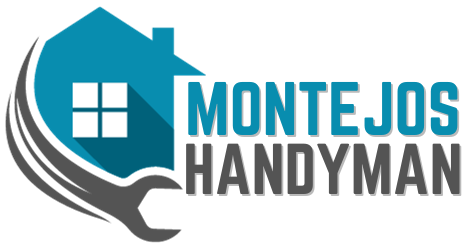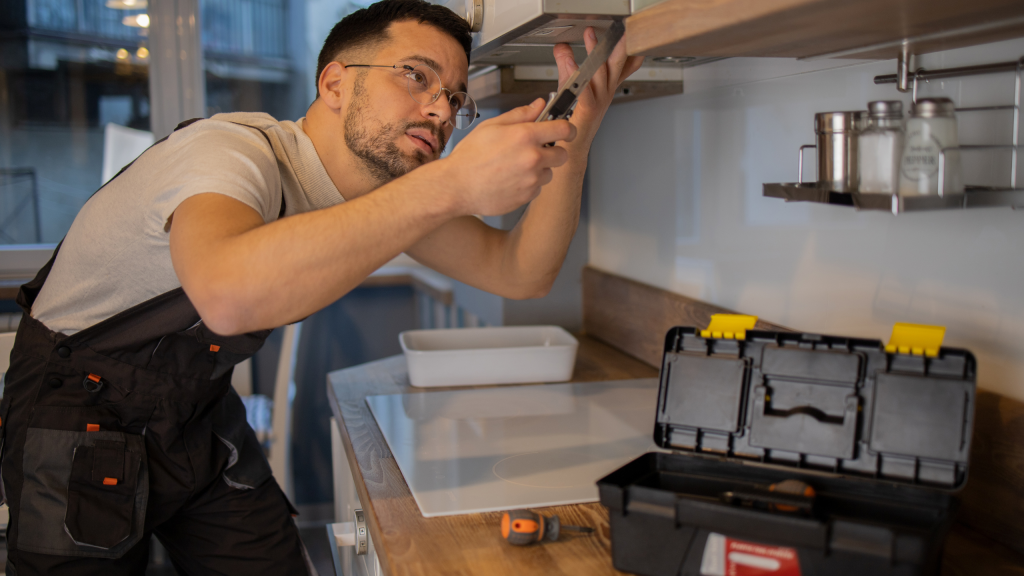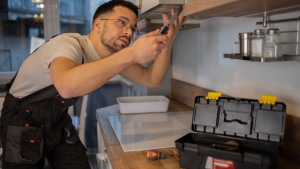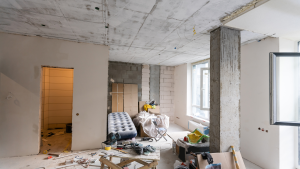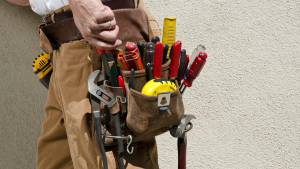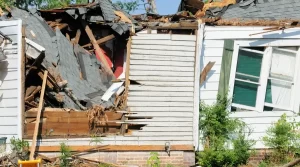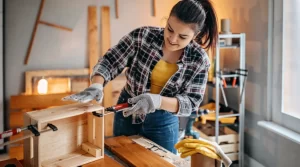Are you looking down a home repair list and feeling overwhelmed by the cost? Whether fixing a leaky faucet, repairing a broken fence, or tackling a renovation project, hiring a handyman can be a lifesaver. But how do you ensure you get the best bang for your buck? Fear not, because we’ve covered you with some savvy money-saving tips for hiring a handyman.
Visit https://www.montejoshandyman.com/ for more details.
Why Hire Handyman Services?
First things first, why should you even consider hiring a handyman? Well, for starters, they’re versatile. Handyman has the skills and expertise to manage various jobs, from little fixes to extensive upgrades. They may also spare you trouble and time by completing the job efficiently and effectively.
Explore Strategies for Maximizing Value
One of the best ways to save money when hiring a handyman is to maximize the value of their services. Here are some strategies to consider:
- Prioritize Tasks: Instead of hiring a handyman, organize related jobs for each activity to minimize service calls and save on overall costs.
- Source Materials Wisely: Opt for budget-friendly suppliers when sourcing materials for your project. You’d be surprised how much you can save by shopping around and comparing prices.
- Off-Peak Scheduling: Consider scheduling your handyman during off-peak times, such as weekdays or slower seasons, when they may be more inclined to negotiate lower rates.
- Cost-Saving Measures During Estimation
When it comes to estimating the cost of your project, there are a few things you can do to save money:
- Get Multiple Quotes: Don’t settle for the first quote you receive. Ask around for quotes from several handymen. To get the best price.
- Ask About Discounts: Inquire about discounts for bundled services or special promotions that could help lower the overall cost of your project.
- Discuss Payment Options: Some handymen may provide adaptable payment choices, such as installment plans or cost savings for paying upfront. It never hurts to ask!
- Before Hiring a Handyperson
Before you hire a handyman, there are a few things you should do to ensure you’re making the right choice:
- Plan Your Project: Take the time to plan out your project in detail so you can provide accurate information when requesting quotes.
- Check Qualifications and References: Ensure your handyman is qualified and reputable by checking their credentials and asking for references from past clients.
- Ask Handyperson-Specific Questions: Don’t be afraid to ask your handyman about their experience, expertise, and approach to the job.
Proactive Maintenance Practices
Prevention is often cheaper than cure. Here are ten proactive maintenance practices that can assist you in avoiding future expensive repairs:
- Regularly clean gutters to prevent water damage: When gutters become clogged, excess water can overflow, posing a threat to your home’s foundation, siding, and interior walls. Consistently removing debris such as leaves and twigs is essential to maintaining proper drainage, allowing rainwater to flow away from your home effortlessly. This proactive measure significantly decreases the likelihood of expensive water damage repairs in the future.
- Close holes and crevices to keep pests out and save on extermination costs: Tiny cracks and gaps in your home create entryways for pests such as insects and rodents. Sealing these openings with caulk or weatherstripping serves a dual purpose: it keeps unwanted critters out and reduces the likelihood of spending money on extermination services in the future.
- Inspect and maintain your HVAC system to maximize efficiency and prevent breakdowns: Regular heating, ventilation, and air conditioning (HVAC) system maintenance is crucial for optimal performance and energy efficiency. Replace air filters regularly, check for leaks or blockages in ductwork, and schedule professional tune-ups to help identify any possible problems before they become more serious and costly repairs.
- Test smoke and carbon monoxide detectors regularly to ensure they function correctly: Smoke and carbon monoxide detectors are your first defense against fire and gas-related emergencies. Test these devices monthly, replace batteries annually, and replace the entire unit every 5-10 years to ensure they remain in working condition and provide reliable protection for your family and home.
- Keep trees and shrubs trimmed to prevent damage to your home’s exterior: Overgrown vegetation can threaten your home’s exterior, causing damage to siding, roofing, and windows. Regularly trim trees and shrubs to maintain a safe distance from your home and prevent branches from rubbing against or falling onto your property during storms, reducing the risk of costly repairs.
- Examine faucets and pipelines for drips and leaks and repair them promptly. Even a tiny leak in your plumbing system can waste gallons of water, cause water damage, and, if ignored, encourage mold formation. Inspect faucets, pipes, and fixtures regularly for signs of leaks or drips and repair any issues promptly to prevent water waste and costly water damage repairs.
- Clean and inspect your chimney to prevent fires and costly repairs: Creosote buildup in your chimney can endanger a fire and jeopardize the stability of your chimney structure. Schedule annual chimney cleanings and inspections to remove creosote buildup, check for obstructions or damage, and ensure your wood-burning stove or fireplace operates safely.
- Maintain your appliances by cleaning filters and examining for signs of wear and tear: Frequent upkeep of home equipment, including dishwashers, washing machines, and refrigerators, can extend their lifespan and prevent costly repairs. Check hoses, clean or replace filters as necessary, and connectors for damage or leaks as soon as possible. Address any unusual noises or performance issues to avoid breakdowns.
- Insulate pipes in cold weather to keep them from freezing and bursting: Frozen pipes can break and seriously harm your home’s structure with water interior. Prevent freezing by insulating exposed pipes in unheated areas such as basements, crawl spaces, and attics. Additionally, keep interior temperatures consistent during cold weather and let faucets drip gently to release pressure in the pipes.
- Examine and clean your roof regularly to avoid leaks and extend its lifespan: Maintaining your roof in excellent shape is crucial since it serves as your home’s first line of protection against the elements. Examine your roof annually for signs of damage, such as missing shingles, cracks, or sagging areas. Clean gutters, remove debris to prevent water buildup and potential leaks, and repair any issues promptly. They assist in extending the life of your roof and saving money on expensive repairs.
Hiring Your Handyman Tips
When it comes time to hire your handyman, keep these tips in mind:
Communicate Clearly: Be clear about your expectations and the project scope to avoid misunderstandings.
Get Everything in Writing: A written contract detailing the project’s parameters, schedule, and payment terms.
Stay Involved: Stay involved in the project to ensure things are going according to plan and address any issues.
Conclusion
Hiring a handyman doesn’t have to break the bank. You can do the job without draining your wallet by following these money-saving tips. From maximizing value to proactive maintenance, There are several approaches to saving costs when hiring a handyman. So go ahead, tackle that to-do list confidently, and enjoy the peace of mind that comes with knowing you’re getting the best bang for your buck.
